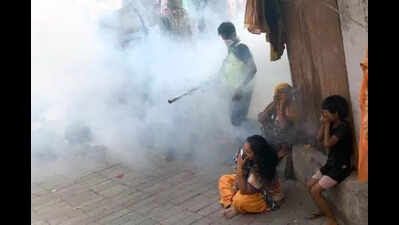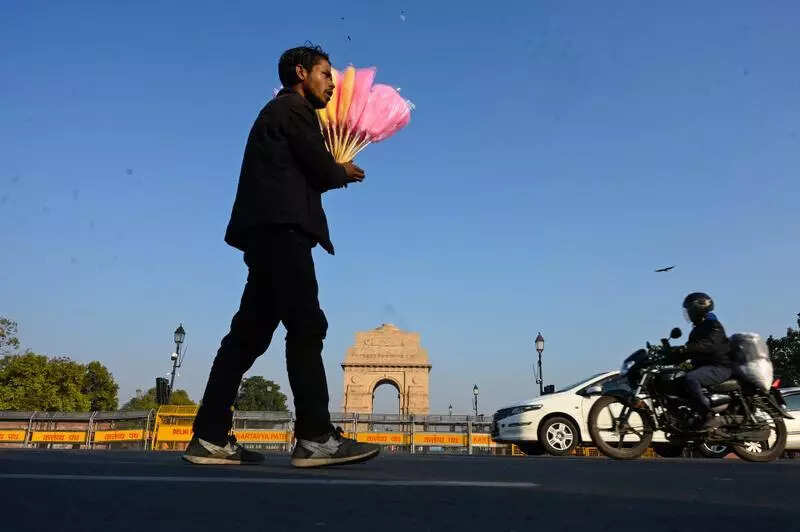New Delhi: The public health department of MCD has started drives against vector-borne diseases in the flood-affected areas as the Yamuna has started receding. Often, low-lying flooded areas face the risk of mosquito infestation and see a rise in infections of malaria and dengue. MCD has decided to cancel the weekly offs of the ground staff in the public health department. “The competent authority has approved that Saturdays and Sundays would be working days till Nov 30 for all staff involved in controlling vector-borne diseases. The staff who work on Saturdays and Sundays will be entitled to an equivalent number of compensatory leaves after Dec 1. They can, however, get gazetted holidays,” an official said.Deputy health officers, whose administrative areas are along the banks of the river, have been directed to monitor the vector-borne disease control drives and ensure the availability of chlorine and ORS packets.Officials said that although the water level has gone down, muddy water is there in places such as Jaitpur, parts of Narela, Najafgarh and Shahdara North. “Since spraying insecticide manually would be difficult, the staff have been told to use power sprayers mounted on machines,” an official said.The public health department has said in a report that from Sept 4-8, the civic body has visited 34 camps in seven zones, which are central Delhi, city-sadar Paharganj, Civil Lines, Najafgarh, Narela, Shahdara North, and Shahdara South. The population affected in these areas is 18,358. The maximum number of affected people — 8,022 — are in Shahdara South, followed by 4,061 in central Delhi, 1,892 in Civil Lines, and 1,720 in the city-sadar Paharganj zone. MCD is reaching medicines to them through 29 ORS or chlorine depots set up around the affected areas.Anti-larva operations were done in 1,346 homes, and the number of houses where fogging was done was 4,329. The number of places where indoor residual spraying was done is 1,674. “We have engaged 136 staff members for the purpose. Compared to insecticides, the IRS sprayed inside tents is effective for up to 60 days,” the official said.In the mean time, Delhi has seen an increase in the number of malaria cases. Till Sept 6, a total of 264 malaria cases were reported, compared to 237 cases in the same duration in 2024, 138 in 2023, and 34 in 2022. Chikungunya cases have also seen a rise — 42 cases reported till Sept 6, compared to 30 cases in 2024, nine in 2023, and three in 2022. The number of dengue cases reported till Sept 6 is almost same — 557 in 2025 (till Sept 6), compared to 578 in 2024 and 1,483 in 2023.Tata Power Delhi Distribution Limited has said that it has started the phased restoration of electricity supply on Monday. Supply has already been restored in flood-affected areas in Adarsh Vihar, Model Town, Kanjhawala and Kadi Vihar.











